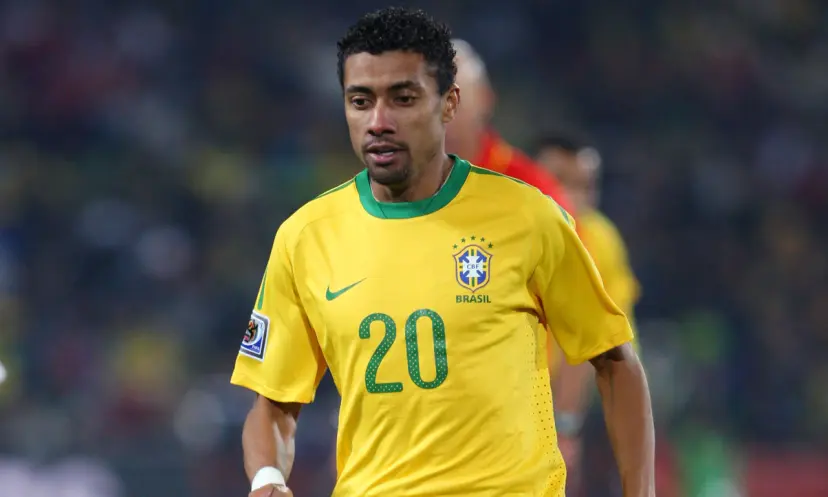World Cup: How the group stage can affect the knockout phase
Published: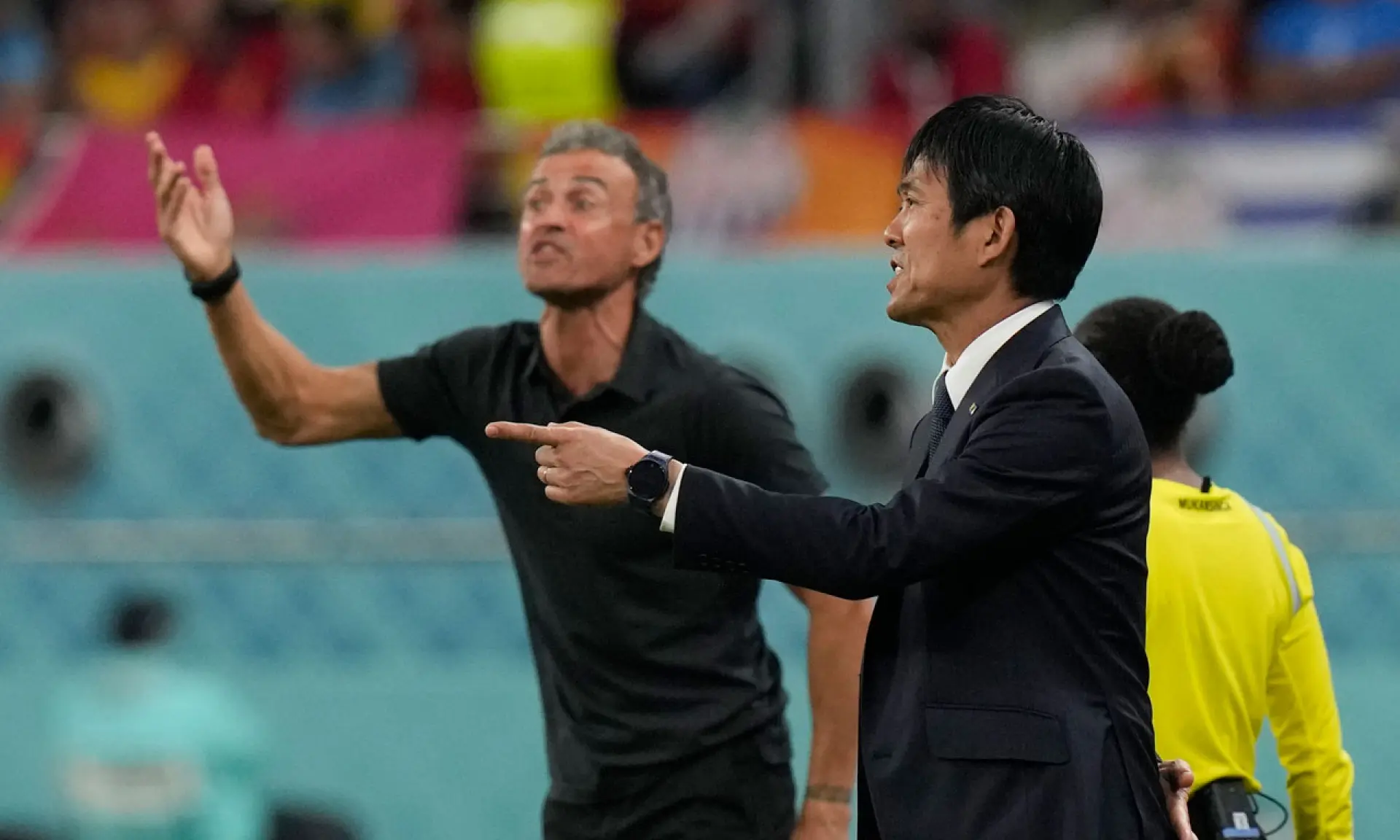
How the group stage affects the World Cup knockout stage
With the World Cup group stage winding down and the knockout rounds looming, we’ve analysed the performance of every nation since the first 32-team tournament in 1998 to break down what we can expect from the business end of the competition.
Does an extra day’s rest make a difference?
Sharp-eyed fans will have noticed that if England reach the quarter-finals then they will have had an additional day of rest than their opponents. Groups A and B finished on November 29 but C and D – the source of the Three Lions’ potential opponents in the last eight – wrapped up a day later.
If Gareth Southgate’s side were to reach the semis, their rest advantage over their opponents would double to two days, with the last 16 ties on each side of the draw separated by 48 hours.
France and Croatia benefited from this in reaching the final four years ago, having secured progress from the round of 16 two days before their eventual semi-final opponents – Belgium and England respectively. This extra recovery time meant they played three knockout rounds over the course of 10 days, rather than eight.
However, results over the past six tournaments call these benefits into question. Since 1998, where a team has had at least an extra 24 hours of recovery time from the quarter-finals onwards, their less-rested opponent has come out on top more often than not.
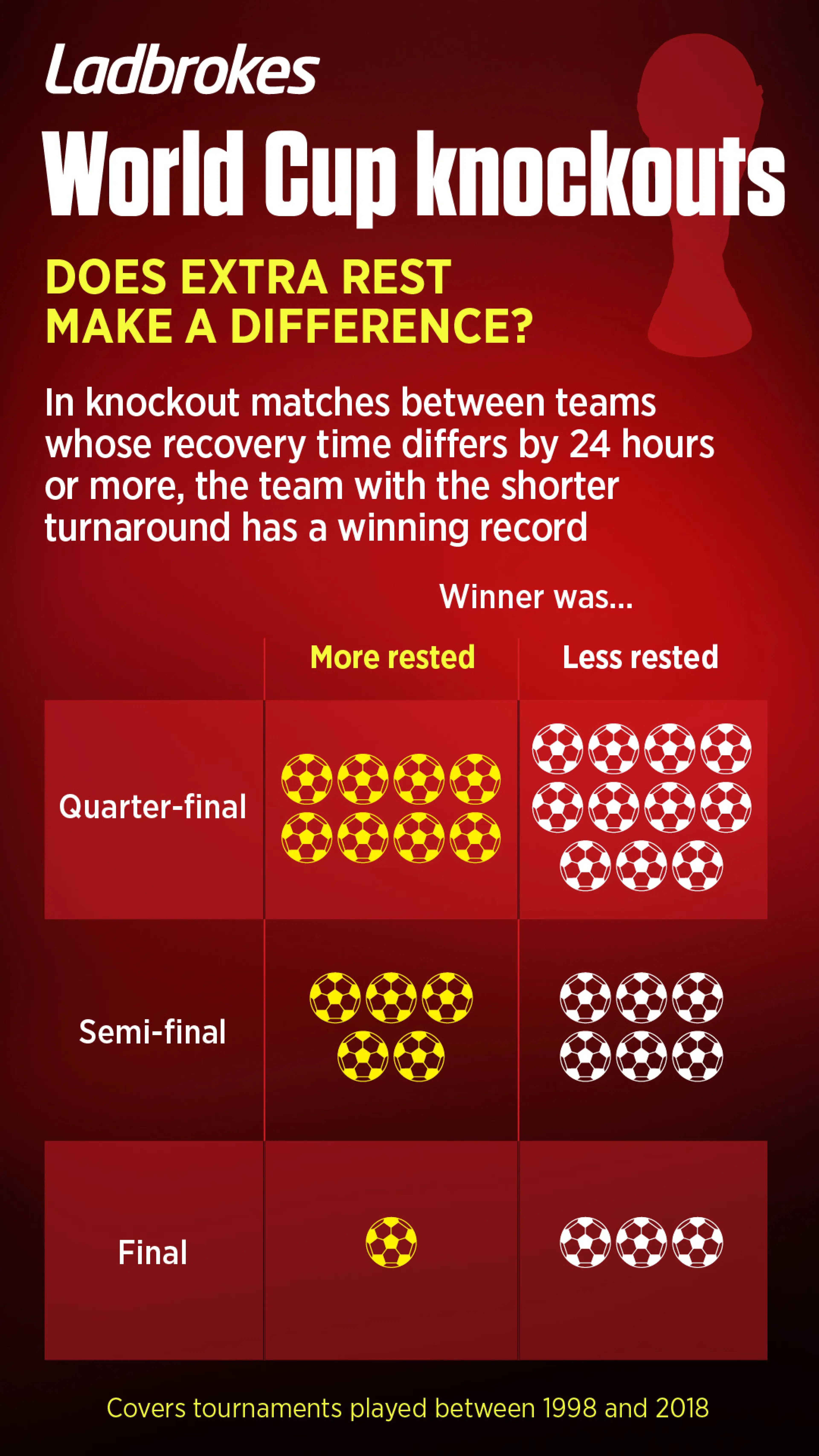
Do group stage results matter in the knockout rounds?
England’s tally of seven points from Group B is their best in a World Cup since 2006, while their total of nine goals scored is their highest in the history of the competition. A number of Southgate’s key attacking players – such as Marcus Rashford and Phil Foden – are in good form, and his trusted central defensive lieutenants Harry Maguire and John Stones are looking as solid as ever.
These are all positive signs based on past results, with history suggesting there is no such thing as peaking too soon during the tournament.
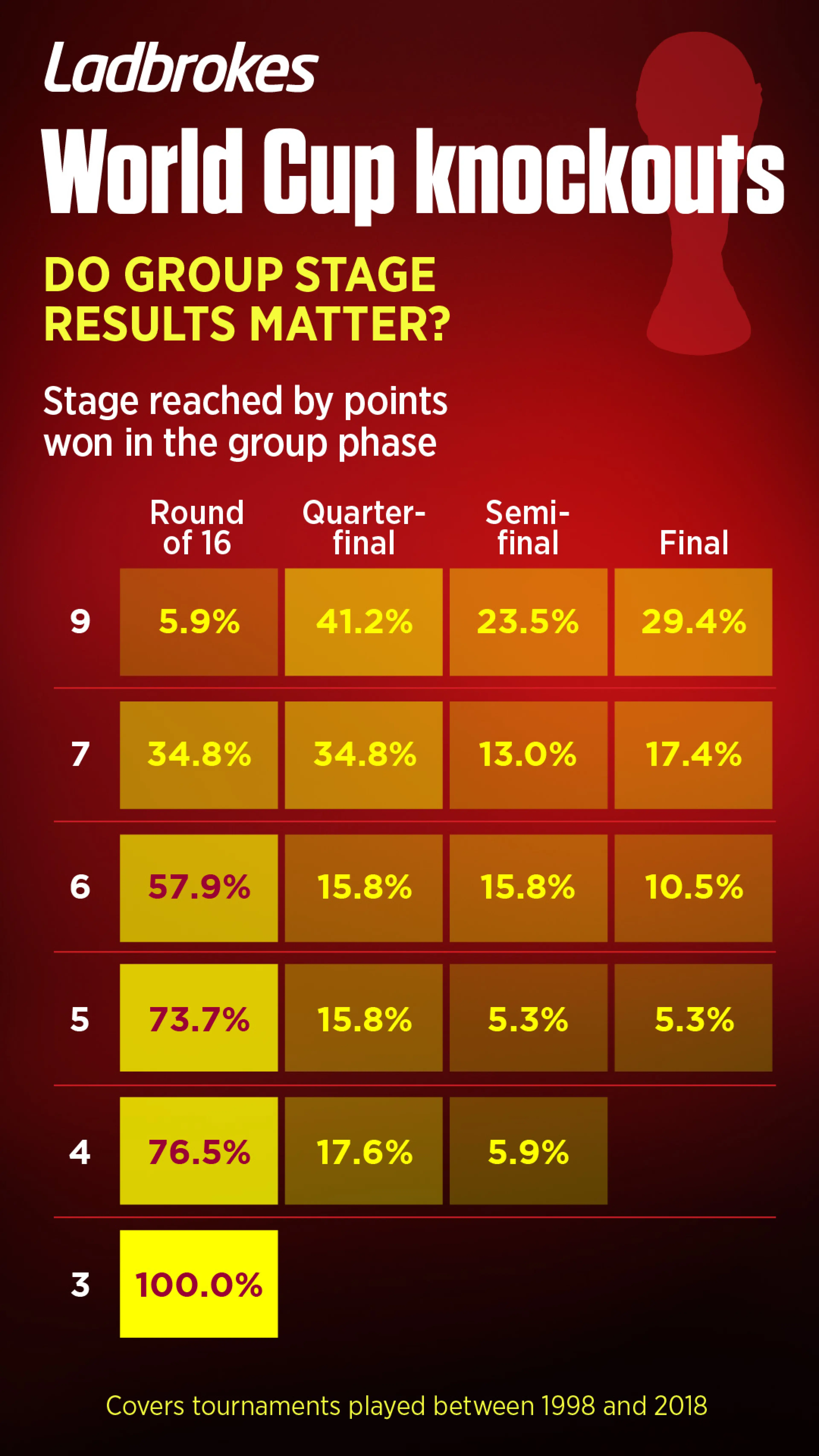
Almost two-thirds (65 per cent) of teams that amassed seven points in the group phase went on to reach the quarter-finals, including Sven-Goran Eriksson’s side in 2006 who defeated Ecuador in the round of 16 before losing on penalties to Portugal.
The omens are even better for countries with an unblemished group stage record, with 94 per cent making the quarters, 53 per cent the semis and 29 per cent the final. Croatia – for example – beat Argentina on their way to three wins from three in 2018, before going on to reach the final.
Is it possible to bounce back from an unexpected defeat?
Argentina, France and Spain have all suffered shock defeats in Qatar, but ultimately did enough to make it through to the knockout phase. Are these losses a temporary blip or a sign of things to come?
Based on results since 1998, it seems that teams overcoming a surprise loss are most vulnerable in the round of 16, with 62 per cent of sides who suffered a defeat to a lower-ranked opponent in their group going on to exit the tournament at this stage.
Argentina’s demise following their group-stage humbling by Croatia in 2018 is a prime example. The defeat put them on a collision course with France in the first knockout round and – despite a spirited display – the Argentines ultimately lost 4-3 and departed the tournament.
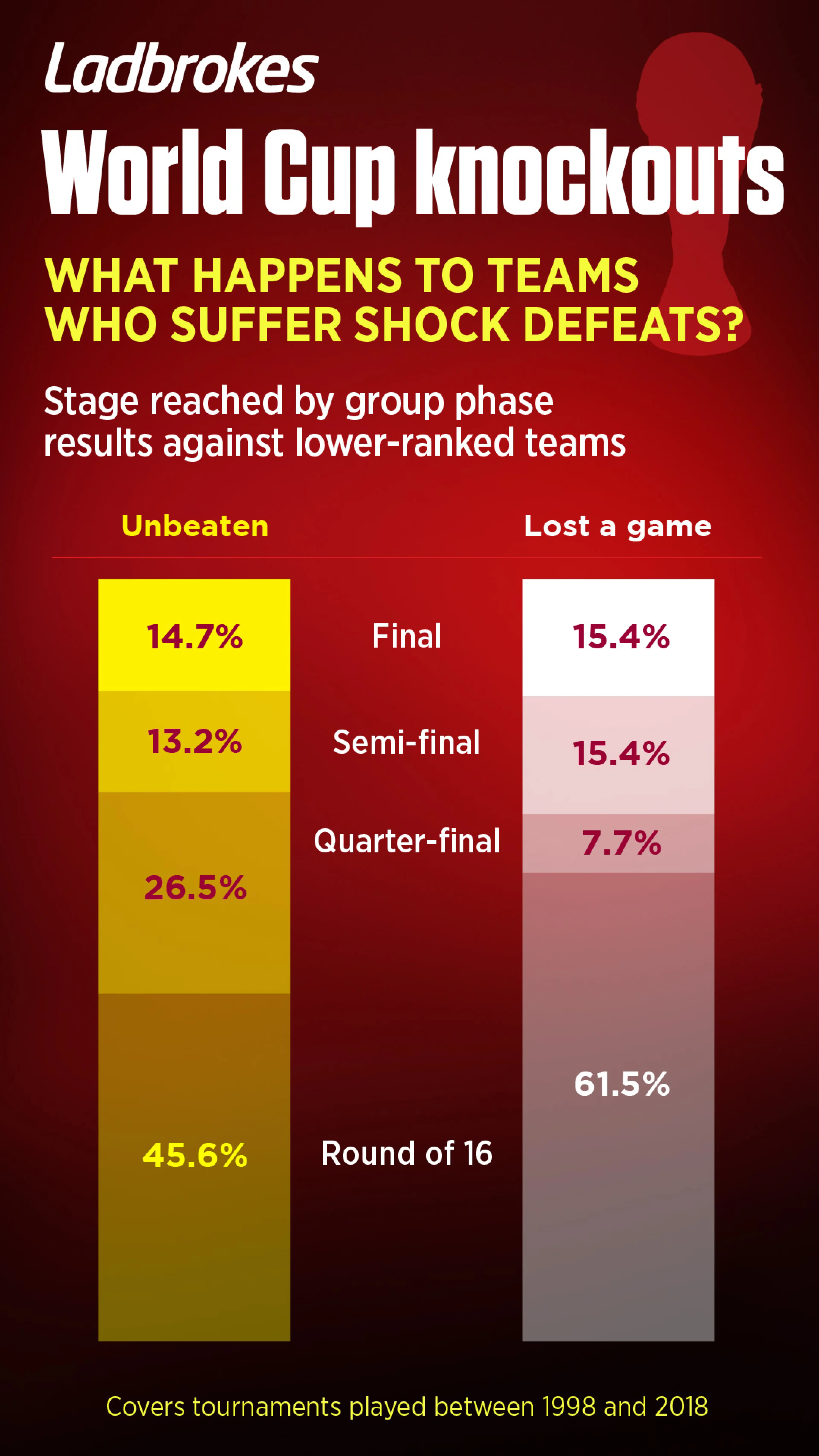
However, if teams can put aside their early disappointment, it is possible to have success in the latter stages. In fact, nations who recorded a group-stage defeat to a less-fancied side have been just as likely to reach the final as those who went unbeaten against their lower-ranked opponents.
Take Spain in 2010, who were shocked by Switzerland in their opening game before winning all of their next six matches and lifting the World Cup trophy for the first time in their history.
What about teams who beat top-ranked opposition?
Shocking a higher-ranked side increases a team’s chances of making it past the last 16, but few giant-killers go on to feature beyond the quarter-finals.
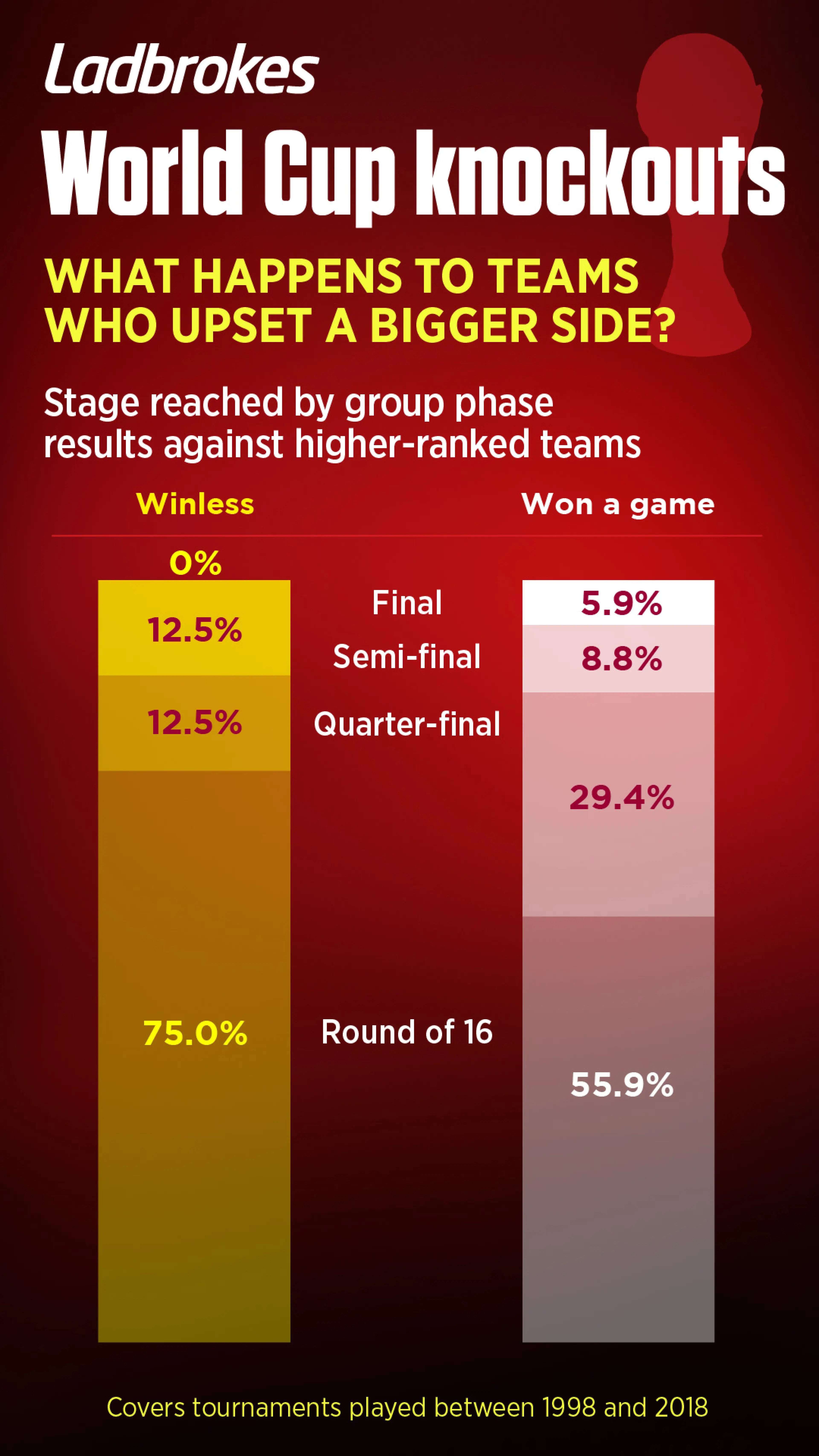
Italy in 2006 are the only side since 1998 to win the World Cup after upsetting a team in the group stage, with their 2-0 win over the Czech Republic setting them on a path to glory. The Italians went into that tournament ranked 13th by FIFA after a poor showing at Euro 2004, while the Czechs – boasting the likes of Petr Cech, Tomas Rosicky and Pavel Nedved – were rated as the second-best team in the world behind Brazil.
Does confidence from a big win carry through to the latter stages?
There have been several big wins in the World Cup group stage this year, with Spain putting on a virtuoso display in their 7-0 dismantling of Costa Rica and England showing all of their attacking prowess by scoring six goals against Iran.
To assess the impact of any confidence gained from these performances, we have divided group winners and runners-up since 1998 into teams that won a game by at least three goals and those that failed to win by a margin of more than two.
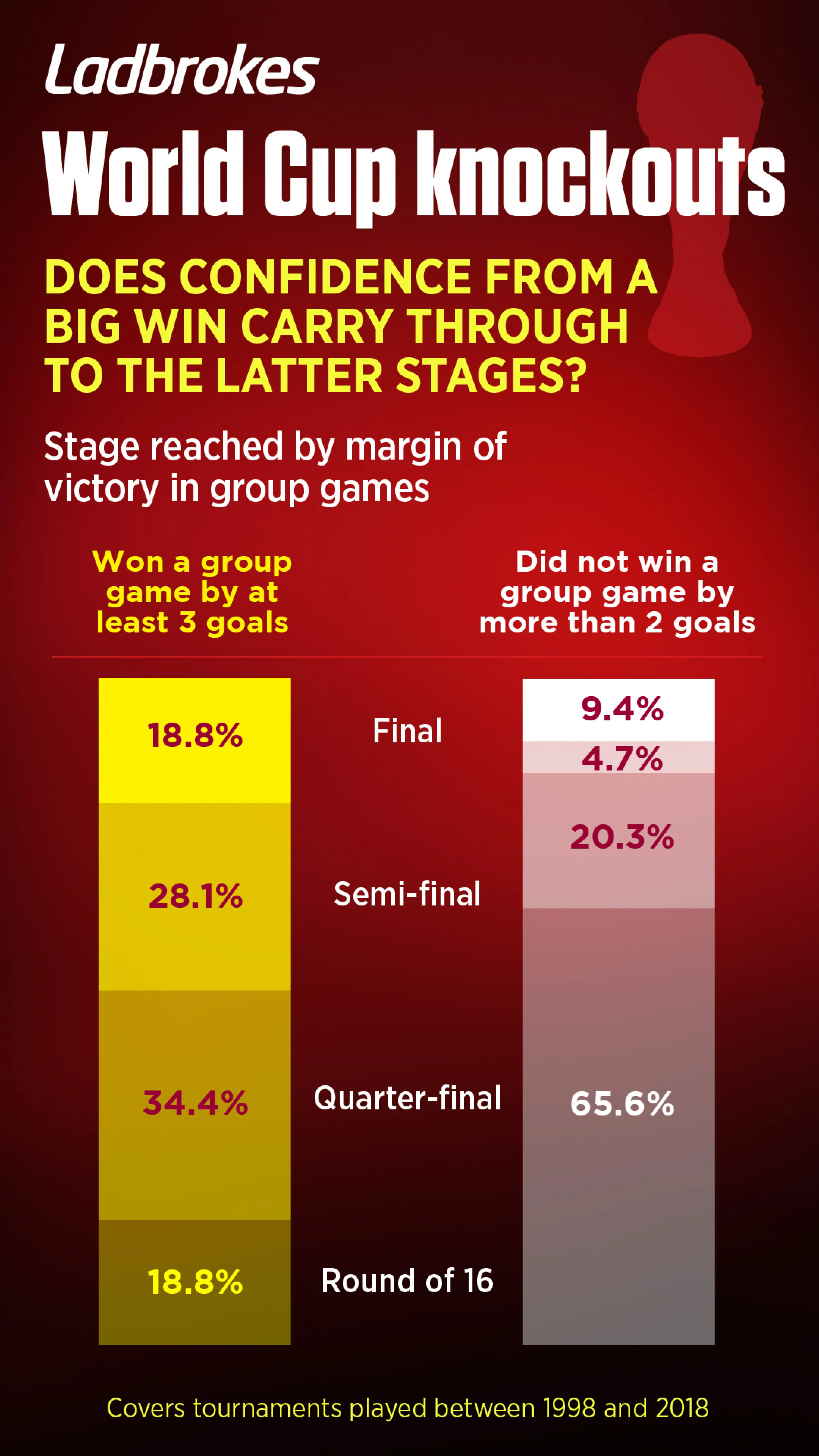
Around 81 per cent of sides that recorded a big win in the group stage tasted victory in the last 16, compared with just 34 per cent of teams that had three close games.
Germany were a good example of this in 2014. Joachim Low’s side thumped Portugal 4-0 in their opening game and carried that form through the rest of the tournament. They went on to thrash Brazil 7-1 in a memorable semi-final played in Belo Horizonte, before lifting the trophy courtesy of an extra-time win over Argentina.
That said, France won the tournament four years later in 2018 by grinding out results in the group stage, with narrow wins over Australia and Peru preceding a goalless draw against Denmark.




